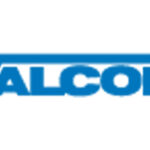“SHOP certainly has been slow growing,” says Eastaugh. “The program is barely working in 15 states. Perhaps it will get up and running in 10 more sometime in 2015.”
Even in the 15 states where SHOP is working, it is not picking up much market share. “In those states there is an average of one employee signed up through a SHOP program for every 100 people signed up on the state exchanges,” says Eastaugh. One reason SHOP has been slow to catch on is because word has not yet gotten around.
“Many employers still do not know anything about SHOP,” says Bromley. “Also, they are accustomed to working with brokers, and those brokers will lose their commissions if they encourage employers to go to the exchanges.”
Another problem with the nascent SHOP program is the lack of economies of scale. The small businesses who patronize SHOP do not have enough employees to attract competitive pricing from insurance carriers. Whether that problem will be mitigated in the future as the SHOP participation grows, remains to be seen.
Tax Credits Applicable to Some
Many small employers enjoy another ACA benefit: the tax credit program intended to assist organizations that offer their workers health insurance.
These credits are available for employers with fewer than 25 employees and average wages of less than $50,000 a year. The credits are worth up to 50 percent of employer contributions to employees’ premium costs, and the program is good for two consecutive years.
Employers desiring to take advantage of the tax credits must offer coverage through the SHOP marketplace. Despite the allure of tax credits, employers have not taken advantage of them as much as anticipated.
RELATED: What’s Missing in 313 Pages of Net Neutrality Rules?
“Again, I think this is due to the learning curve,” says Bromley. “Employers are confused about how to calculate the tax credit. They do not see a penalty for not providing insurance so it’s hard for them to look further down the road.”
And perhaps the program’s benefits need to be adjusted. “My feeling is that the tax credits were not of sufficient size, and the fact that they expire in two years doesn’t help,” says Eastaugh. “Maybe the carrot needs to be made bigger. Perhaps the tax credits should be 80 percent and they should go on for five years.”
He adds that a more generous tax credit policy might also allow employers to offer plans with lower deductibles.
Private Exchanges Can Reduce Overhead
While the SHOP exchanges and its attendant tax credits are potentially valuable resources for smaller employers, businesses large and small can take advantage of an unexpected offshoot of the ACA: private health insurance exchanges.
These are set up by private sector companies such as insurers, brokers or consultants. Like their SHOP counterparts, the private exchanges offer a variety of plans to employers and opportunities to reduce administrative overhead.
Basic human resource functions (such as tracking which employees are signed up with which polices) are done automatically by the organization running the private exchange.
RELATED: Avoid Getting Your Mother or Your Business Sued
But there are also differences. Private exchanges offer more choice and plan customization than SHOP. They also provide the opportunity for employers to contribute toward premiums in the form of a fixed amount rather than a percentage. That can help reduce costs as premiums rise.
“Private exchanges are growing like wildfire,” says Larry S. Boress, president and CEO of the Midwest Business Group on Health, a Chicago-based consortium of over 120 employers. “Our surveys show that 40 percent of our member employers plan to look at private exchanges as possible sources for health insurance.”
More information about private health exchanges can be found through an organization called The Private Exchange Evaluation Collaborative.
Public Exchanges & Employer Mandate
Thanks to the ACA, employers can take advantage of a third type of exchange: the state public exchanges at which people can shop for a health insurance plan that meets the ACA minimum coverage guidelines.
Smaller employers who decide health insurance is too expensive might decide to send their employees to these market-places to shop for coverage. But which employers can send their workers to the public exchanges without incurring fines?
This is a good point to cover one of the more confusing parts of the ACA legislation: the employer mandate. This term refers to the requirement that employers of a certain size must either offer health insurance to their workers or pay financial penalties. The threshold for the employer mandate is defined by the number of full-time equivalent employees (FTEs) at the business.















